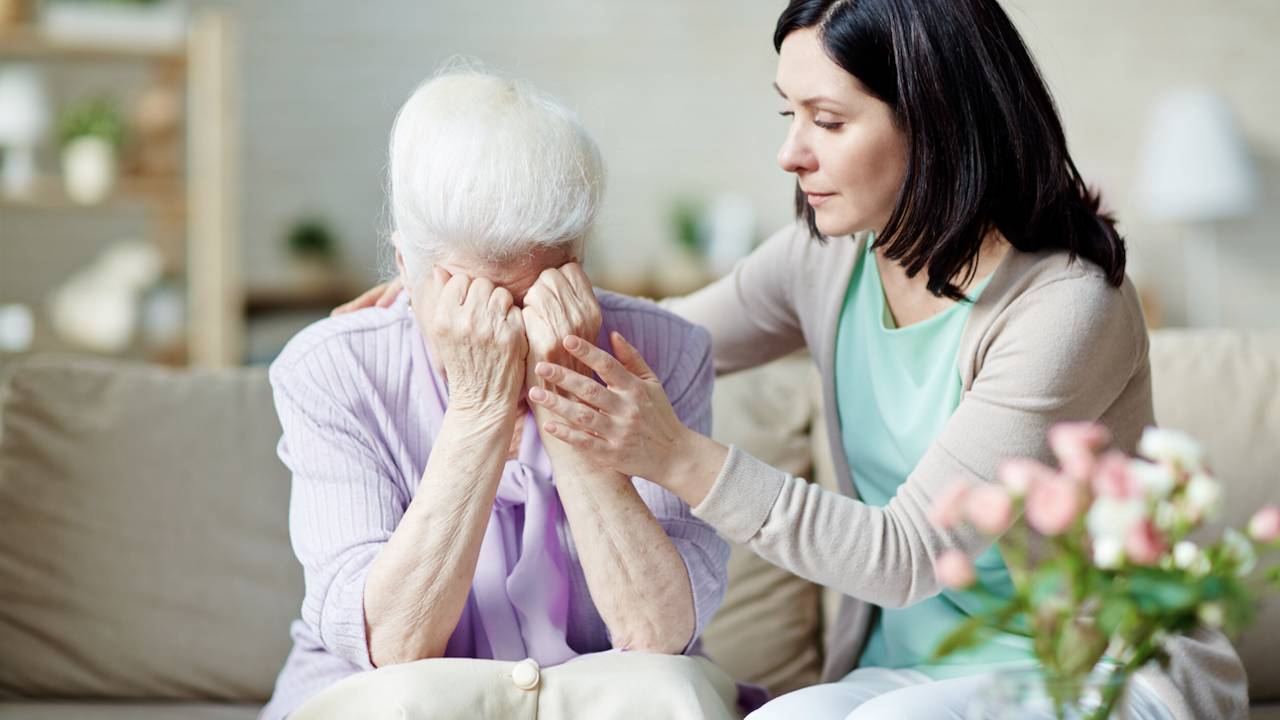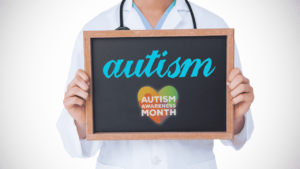Depression is NOT a normal part of aging, but depression IS the most prevalent mental health condition among older adults. Unfortunately, depression in late life often goes undetected and untreated largely due to the false belief that with age comes depression.
This is why it is so important to learn about depression and have tools and resources to help aging parents get treated for depression. In this episode of the Caring for Aging Parents Show, I answer several questions related to older adults and depression, including:
- What are the rates of depression in older adults?
- What are the signs of depression in older adults?
- What to do if your aging parent has depression?
- How do I find mental health providers for older adults?
- Is depression in older adults treatable?
What are the rates of depression in older adults?
According to the Centers for Disease Control and Prevention (CDC), only 1% to 5% of people 65 and older living in the community have depression. The rates increase a bit when older adults are in the hospital for a medical problem, but only to 11.5%, and still a little bit more to 13.5% when older adults require home health care assistance in their home.
According to the National Institute of Health, adults 50 years and older actually have the lowest rates of depression among all adults- Less than 5%. Sadly, the group with the highest rates of depression are young adults between 18-25 years old.
So you can see, the vast majority of older adults do not have depression. Even with this said, it is important to point out that while most older adults will not develop depression, depression is actually the most prevalent mental health condition among older adults, so if you’re caring for aging parents, especially aging parents who have medical problems and receive home health assistance for medical problems, or are in the hospital or have recently been in the hospital, it’s important that you are aware of the signs and symptoms so that you have the tools you need to help your aging parents if they need it.
What are the signs of depression in older adults?
- Persistent sadness or crying a lot
- Feeling worthless or helpless
- Feeling slowed down
- Excessive worries about finances and health problems
- Weight changes (due to changes in appetite- like gaining weight or losing weight)
- Restlessness (like pacing and fidgeting), or the opposite, being unusually still.
- Changes in sleep, like sleeping too much or too little.
- Difficulty concentrating
- Physical symptoms such as pain or GI problems.
- Withdrawal from regular social activities
In order to meet the criteria for a depressive disorder, the older adult only has to 5 of those symptoms lasting for 2 or more weeks AND these symptoms must affect how they are functioning. Like in friendships, relationships, with how they are taking care of themselves, or engaging engaging in activities.
What should I do if I’m concerned that my aging parent has depression?
- Talk with your aging parent about what you’ve been noticing in a compassionate and concerned way
- Encourage your parent to see their primary care provider to rule out any medical concerns that may be causing these symptoms. If medical concerns are ruled out, or properly treated, and they are still experiencing depression symptoms, then, go to step number three.
- Help your parent get connected with a mental health provider who specializes with older adults. Here’s how!
How do I find mental health providers for my aging parents?
- Psychology Today– In this resource portal, you can search for Psychologists and Psychiatrists who specialize in older adults, simply select your age category (Elders 65+)
- Geriatric Mental Health Foundation– The doctors listed on their website are members of the American Association for Geriatric Psychiatry (AAGP).
- Major Medical Centers and Universities – If your aging parent lives near a major medical center or medical university, go online (or google them) to see if they offer mental health care for older adults. Here are some common terms to help you in your search: geriatric mental health, behavioral health for older adults, a geriatric psychiatry program, etc.
Do older adults REALLY benefit from treatment for depression?
I started this episode, by saying that depression is not a normal part of aging. And, I want to tell you why this is so important! As a result of this false belief, older adults are living with depressive disorders when they don’t have to. And this is because, many people wrongly think that the person is old or ill and so “must be” depressed. This belief is not only wrong, it keeps people suffering when they don’t have to
In fact, the CDC tells us that 80% of the cases of depression in older adults are treatable! But, here’s the thing- depression can’t get treated if it goes unrecognized and untreated.
What happens if depression goes untreated in older adults?
Not only does treating depression in older adults alleviate suffering, we know that when depression goes untreated in older adults they:
- Have more medical problems,
- Stay longer in the hospital,
- Use more medication for their medical problems,
- Have more visits to the ER, and
- Experience more loneliness and isolation
This is where you come in! First you can begin to shift your view that with age comes depression, and secondly, you can help your aging parent get connected to providers and resources that can help treat suffering and ease pain.
So, please don’t ignore these signs and symptoms. Instead lean in, share your concerns, and help your aging parent get connected to providers.
Want to learn more about caring for aging parents?
I wanted to share with you an important freebie, that’s something free, I made just for you. It’s called, The Ultimate Caring for Aging Parents Checklist. This checklist will get you started with managing the most complicated situations with your aging parents, including how to start the conversation about needs and wishes with aging, a list of essential documents you’ll need to gather, and strategies for taking care of yourself along the way. So, take a moment to download it.
Related Episodes:
- Dementia, Delirium, and When To Seek Medical Care. Interview with Dr. Lisa Frank- Part 1 (Ep #028)
- Hallucinations, Delusions, and Antipsychotic Medications. Interview with Dr. Lisa Frank- Part 2 (Ep #029)
- Older Adults and Psychiatric Inpatient Units. Interview with Dr. Lisa Frank- Part 3 (Ep #030)
- Talking With Older Adults About Stopping Driving Without Pushing Them Away! (Ep #019)
References:






